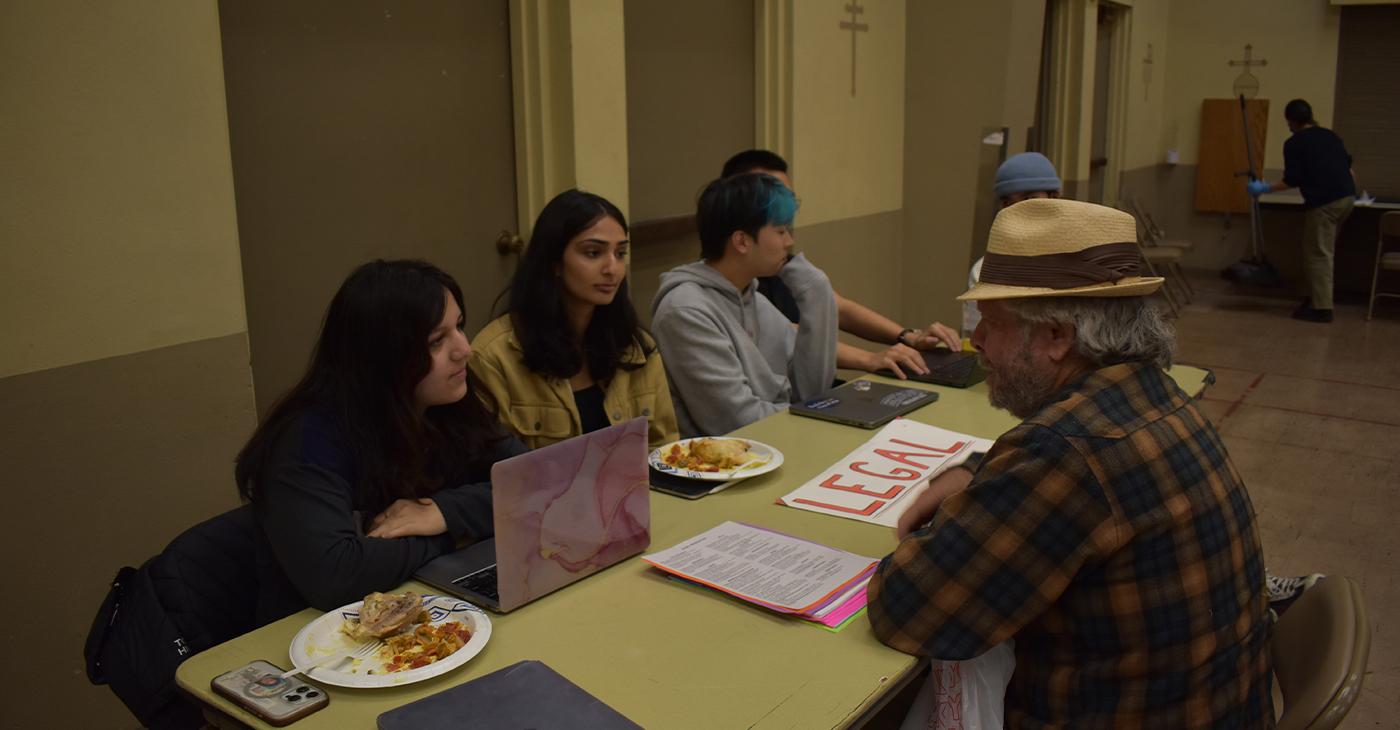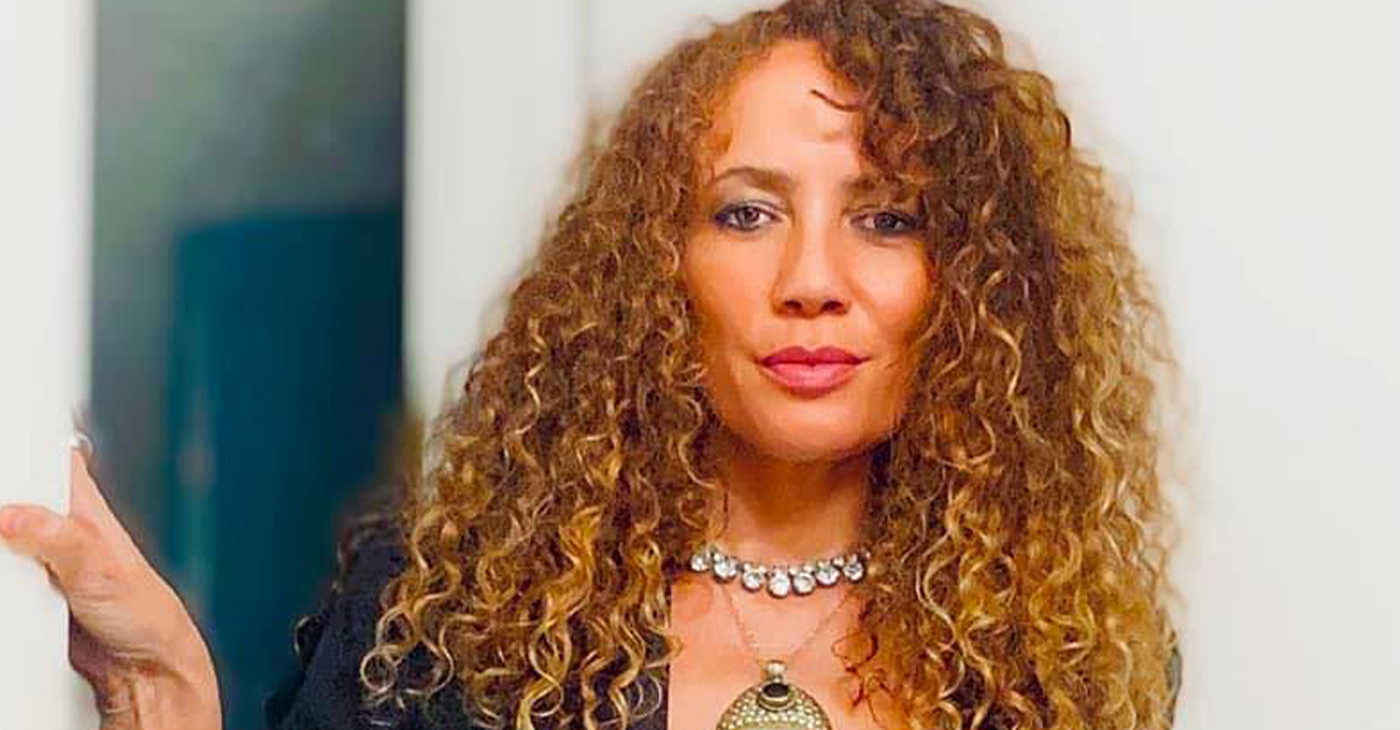Health
Fruits and Vegetables Get a Star-Studded Marketing Push

In this April 24, 2014 file photo, a variety of healthy fruits and vegetables are displayed for sale at a market in Washington. A 12-year study released Monday, Sept. 1, 2014, shows a steady improvement in American’s eating habits, but food choices remain less than ideal. (AP Photo/J. Scott Applewhite, File)
CANDICE CHOI, AP Food Industry Writer
NEW YORK (AP) — What if cauliflower got the same type of marketing firepower as candy bars and potato chips?
A campaign being launched Thursday plans to put that premise to the test by enlisting celebrities including actress Jessica Alba and NBA star Stephen Curry to shill for fruits and vegetables.
The campaign was announced by the Partnership for a Healthier America, which works with private companies and was created in conjunction with first lady Michelle Obama’s Let’s Move! initiative to get families to eat better and exercise. The push is being called “FNV,” which is intended to be a catchier way to refer to “fruits and vegetables.”
“We were inspired by the big brands and, can we do what they’re able to do?” said Lawrence Soler, CEO of the Partnership for a Healthier America.
To start, the campaign will primarily be on social media networks like Twitter, where short videos featuring Alba and NFL quarterbacks Colin Kaepernick and Cam Newton will be posted. Additional videos will be released in coming days starring Curry, New York Giant Victor Cruz and others.
A teaser video for the broader campaign to be posted online Thursday features stars with fruits and vegetables set to music, with the words “PREPARE TO BE MARKETED TO” flashing on the screen. Around spring, a marketing push including TV and print ads is slated to hit two markets — Fresno, California, and Hampton Roads, Virginia.
Over time, Soler said the idea is to expand the campaign more broadly, although plans haven’t been pinned down.
The FNV campaign was created by the ad agency Victors & Spoils, which lists clients including Coca-Cola and General Mills. The agency got involved after being asked to cook up a similar effort for broccoli in 2013 for a New York Times story by Michael Moss, author of “Salt, Sugar Fat: How the Food Giants Hooked Us.”
Andrew Nathan, chief marketing officer for Victors & Spoils, noted that fruits and vegetables are already attractive subjects with vibrant colors and interesting flavors. The only thing they lack is the “marketing pixie dust” that makes packaged foods so irresistible, he said.
“Obviously, our inspiration for all this was behaving like a big, iconic brand,” Nathan said.
The concept proposed in the New York Times story had already been getting attention; Nathan said Victors & Spoils has since been tapped to create a similar campaign for a major broccoli producer. There have been other efforts to spruce up the way produce is marketed, too. In 2010, baby carrot farmers ran an “Eat ‘Em Like Junk Food” campaign for the miniature snacks in Cincinnati and Syracuse, N.Y.
Todd Putman, chief commercial officer of bagged carrot maker Bolthouse Farms, said that push resulted in an increase in carrot sales in the two markets, and has helped shape how the company markets its various offerings, including premium juices.
“For years, people have been advertising fruits and vegetables in a very rational way,” he said, noting that messages around produce are usually about how many daily servings people should eat.
He said FNV was a continuation of the idea that fruits and vegetables should be marketed in a more “emotive” way.
During her remarks on stage at the Partnership for a Healthier America summit, the first lady expressed excitement for FNV.
“If folks are going to pour money into marketing unhealthy foods, let’s fight back with ads for healthy foods,” she said.
Among those providing financial and other support for FNV are Bolthouse Farms, which is owned by Campbell Soup, and the Produce Marketing Association, a trade group whose members include Sunkist, Dole, Wal-Mart and Chick-fil-A. Other supporters include the Robert Wood Johnson Foundation and Alba’s Honest Company, which makes baby and home products.
Putman said FNV already has about $5 million in funding, with plans to continue raising funds. Still, it’s up against the considerable resources of big food marketers.
For the first nine months of last year, for example, McDonald’s Corp. spent $587.6 million on TV advertising in the U.S. alone, according to Kantar Media. Coca-Cola Co. spent $265.2 million.
Michael Jacobson, executive director of the Center for Science in the Public Interest in Washington, D.C., said an advertising campaign for fruits and vegetables could be powerful in influencing eating decisions, but that its effectiveness would depend on how much support it gets and how persistent it is.
“A lot of money for one day won’t do anything,” he said.
___
AP Writer Darlene Superville contributed from Washington, D.C.
___
Follow Candice Choi at www.twitter.com/candicechoi
Copyright 2015 The Associated Press. All rights reserved. This material may not be published, broadcast, rewritten or redistributed.
Activism
Through Two Programs, Shuja Helps Others Get a Second Chance at a First-Class Life
Damon Johnson, a peer counselor who serves as the executive director of Black Men Speak and Men and Women of Color will be affected by the state’s new rules. Living with a behavioral health condition, he is an advocate and a leader. Damon, best known as Shuja, was incarcerated for 34 years and today is advocating for the rights of persons with similar lived experience and for the survival of peer-led programs like the one he manages.

By Melody Parker, Gloria Woodson, Jaleah Winn and Damon Shuja Johnson
Special to The Post
Under recently passed Proposition 1, California’s behavioral health services will be allocated $1 billion for services for the unhoused in 2026-27, Governor Gavin Newsom announced last summer.
Although some of the funds from the Mental Health Services Act were diverted to Proposition 1, individuals living with behavioral health conditions and housing challenges are maintaining hope for wellness and recovery.
Damon Johnson, a peer counselor who serves as the executive director of Black Men Speak and Men and Women of Color will be affected by the state’s new rules. Living with a behavioral health condition, he is an advocate and a leader. Damon, best known as Shuja, was incarcerated for 34 years and today is advocating for the rights of persons with similar lived experience and for the survival of peer-led programs like the one he manages.
Two days after his reentry to the community, Shuja began work as an outreach coordinator for Black Men Speak. Within a year, Shuja was promoted and later appointed to director after the loss of former Black Men Speak Executive Director Joe Anderson.
A native of North Oakland, Shuja was raised in an all-women household after his grandfather was murdered. Though dealing with his own grief, the loss caused Shuja to become the “man of the family.”
His grandmother’s nurturing helped him to overcome the trauma of his grandfather’s death which, “gave him a foundation as a child.” He recalls fond memories of his childhood, like riding a new bike he received for the holidays. “My friends and myself spent meaningful time together as children,” he said. “Together, we would build go-carts, climb trees, have rock fights and find worms, crabs and bees.”
But his trauma impacted his childhood and led to his being impacted by the system. Shuja grew up mostly in detention halls and prison.
Besides directing Black Men Speak! (BMS!)/Men and Women of Color (MWOC), he is also the director of a self-help center in Oakland. There, Shuja and the peer workers provide support to the unhoused. He coordinates a digital literacy program, co-facilitates trainings for peer support specialists, organizes a service animal resource, provides peer support and directs speakers’ bureaus.
BMS! and MWOC are programs increasing wellness and recovery by sharing stories of hope and journeys to meaningful living. Members have authored presentations and spoken to audiences on topics such as post-traumatic stress disorder, family, community violence, self-worth, spirituality, and mental health, alternative therapies, eight dimensions of wellness, reentry, single parenting and health.
The members have been featured nationally and locally, at trainings and conferences and throughout Alameda County Behavioral Health Care services. The organization has been in operation for over a decade.
It all began in 2009 and received nonprofit status in 2012. The group developed from Peers Organizing Community Change, formerly known as Pool of Consumer Champions (POCC), originally established as an all-men’s committee.
The committee co-founders Dewitt Buckingham and Darnell Livingston organized men with experience in the public mental health system for a speaker’s bureau. This was the consensus of the committee after a process facilitated by Katrina Killian, Steven Bucholtz, Sally Zinman and Jaleah Winn.
The committee and facilitators composed the following mission. The BMS!/MWOC mission is “to inform and enlighten the mental health community and the general public about issues concerning men and women of color suffering from mental health and substance abuse challenges, through storytelling thereby promoting ad increasing wellness, recovery, and freedom.”
Shuja has a vision and plans for the organization. “BMS!/MWOC will be sustained with the funding of $1.5 million for capacity building to hire people to pay salaries for staff.”
Currently, BMS!/MWOC has volunteers assisting the programs. Funding will enable the enhancement, increase in self-help services and provide for outings and meals. “We want exposure as when adults and children have taken the free BART rides to go to places outside of Oakland that they never traveled,” Shuja said. “We want to go to Africa. More influential communities can travel, and we need the same opportunity.”
Despite several barriers that are facing Shuja and the organization, he is determined to fulfill the nonprofit’s mission. “There is money. Children wear $200 shoes. We want to teach financial literacy, not to be a slave but how to buy and how to keep. BMS! needs some rich friends and we also need friends who have know-how. We need support from private and public sectors.
“BMS! is one of the only Black organizations in ACBHCS. Today we have the SB 803, Peer Support Specialist bill that will enable us to bill Medicaid/Medi-Cal and only two full-time staff. We do not have the support of the community.”
Shuja is honored to be a participant in advocacy for legislation to improve the lives of peers and is not discouraged by changes to statewide policies. The current changes coming down the pike with Prop 1 are motivating him to work more diligently for the rights of behavioral health clients.
“This is about employment and empowerment and authenticity. The unhoused can be asked about hope and faith. I had to have faith and hope every day that I awakened in prison. I would have died in prison, but I had hope, faith and peer support and it manifested.
“My first reentry job is to go back to my family and save them and if this is repeated among families then we will have wellness and community. Kids raise themselves today. Today, grown folks cannot be in kids’ business. We want to do better. How can we bring back the good of the past?”
Today, the good of the past is coming back with the work of Black Men Speak! Men and Women Of Color. All support is welcome. Black Men Speak and Men and Women of Color welcome contributions and invitations to collaborate. In order to contact the program staff please reach out to 510-969-5086 or shuja@blackmenspeak.org.
Activism
A Student-Run Group Is Providing Critical Support Services to Underserved Residents
During his three years volunteering at the program, Resource Director Zain Shabbir, says he noticed that many of the people who come in do not know how to navigate social services support systems, particularly online. This knowledge deficit, Shabbir says, is due to age or limited exposure to technology.

Part 2
By Magaly Muñoz
Resource Director Zain Shabbir is a jack-of-all-trades at the Suitcase Clinic, a student-run resource center that provides health and other services to underserved residents of Berkeley and surrounding areas.
Shabbir was once a clinic director. Now, he manages the General Clinic, floating around when case managers need assistance. And he has big plans for a new initiative.
During his three years volunteering at the program, Shabbir says he noticed that many of the people who come in do not know how to navigate social services support systems, particularly online. This knowledge deficit, Shabbir says, is due to age or limited exposure to technology.
So, he teaches clients the basics of using email, writing in word documents, and backing up files to their phones.
Shabbir shared a story about an interaction he had with a woman who came in seeking help to create a template to message property owners and realtors as she was seeking housing. Until that point, the woman was composing separate messages to each listing she was interested in, and that process was taking up too much of her time. With Shabbir’s help, she created a standard template she could modify and use for each housing inquiry or application.
He’s also hoping to use the technology to help people create resumes to find jobs.
“[The intent] is to help people find work in the city or wherever they live — or help them find housing. As most are probably aware, the two really go together because for housing, you need income verification, and for a job you need housing,” Shabbir said.
Having a warm place to go and a hot meal may seem basic buy it is critical for people who are struggling, clinic leaders say.
Mark, a frequent attendee of the Tuesday clinic, told the Oakland Post that he’s been receiving services from the program for nearly 25 years.
Mark said he was able to receive a referral to dental care through the Clinic, which he’s been using for about 20 years now. He also utilized the chiropractor, a service that is no longer offered, for pain and aches he acquired over the years.
Many program participants say they visit the clinic now for services provided by Berkeley medical students, who rely on osteopathic care rather than traditional methods. Osteopathic medicine is a medical philosophy and practice that focuses on the whole person, rather than just symptoms.
Executive director Nilo Golchini said that many clinic patients tend to appreciate and trust this type of medicine over mainstream practices because of sub-standard care they have received in the past because they are homeless or poor.
Acupuncture is also an extremely popular station at the Clinic as well, with participants saying it “soothes and calms” them.
Attendees of the clinic are generally in happy spirits throughout the hours they’re able to interact with fellow residents. Some even participate in arts and crafts, moving from table to show their friends their new creations.
“It’s a program that’s going strong,” said Golchini. “There’s a space for everyone” who wants to volunteer or receive services, and they’ll keep going as long as the community needs it.
The Suitcase General Clinic is open every Tuesday from 6:30 to 9:30pm. Women’s and Youth Clinics are held every Monday from 6 to 9pm.
Activism
2024 in Review: Seven Questions for Frontline Doulas
California Black Media (CBM) spoke with Frontline Doulas’ co-founder Khefri Riley. She reflected on Frontline’s accomplishments this year and the organization’s goals moving forward.

By Edward Henderson, California Black Media
Frontline Doulas provides African American families non-medical professional perinatal services at no cost.
This includes physical, emotional, informational, psychosocial and advocacy support during the pregnancy, childbirth and postpartum period. Women of all ages — with all forms of insurance — are accepted and encouraged to apply for services.
California Black Media (CBM) spoke with co-founder Khefri Riley. She reflected on Frontline’s accomplishments this year and the organization’s goals moving forward.
Responses have been edited for clarity and length.
Looking back at 2024, what stands out to you as your most important achievement and why?
In 2024, we are humbled to have been awarded the contract for the Los Angeles County Medical Doula Hub, which means that we are charged with creating a hub of connectivity and support for generating training and helping to create the new doula workforce for the medical doula benefit that went live in California on Jan. 1, 2023.
How did your leadership and investments contribute to improving the lives of Black Californians?
We believe that the revolution begins in the womb. What we mean by that is we have the potential and the ability to create intentional generational healing from the moment before a child was conceived, when a child was conceived, during this gestational time, and when a child is born.
And there’s a traditional saying in Indigenous communities that what we do now affects future generations going forward. So, the work that we do with birthing families, in particular Black birthing families, is to create powerful and healthy outcomes for the new generation so that we don’t have to replicate pain, fear, discrimination, or racism.
What frustrated you the most over the last year?
Working in reproductive justice often creates a heavy burden on the organization and the caregivers who deliver the services most needed to the communities. So, oftentimes, we’re advocating for those whose voices are silenced and erased, and you really have to be a warrior to stand strong and firm.
What inspired you the most over the last year?
My great-grandmother. My father was his grandmother’s midwife assistant when he was a young boy. I grew up with their medicine stories — the ways that they healed the community and were present to the community, even amidst Jim Crow.
What is one lesson you learned in 2024 that will inform your decision-making next year?
I find that you have to reach for your highest vision, and you have to stand firm in your value. You have to raise your voice, speak up and demand, and know your intrinsic value.
In a word, what is the biggest challenge Black Californians face?
Amplification. We cannot allow our voices to be silent.
What is the goal you want to achieve most in 2025?
I really would like to see a reduction in infant mortality and maternal mortality within our communities and witness this new birth worker force be supported and integrated into systems. So, that way, we fulfill our goal of healthy, unlimited birth in the Black community and indeed in all birthing communities in Los Angeles and California.
-

 Activism4 weeks ago
Activism4 weeks agoOakland Post: Week of November 27 – December 3, 2024
-

 Activism2 weeks ago
Activism2 weeks agoButler, Lee Celebrate Passage of Bill to Honor Congresswoman Shirley Chisholm with Congressional Gold Medal
-

 Activism2 weeks ago
Activism2 weeks agoPost News Group to Host Second Town Hall on Racism, Hate Crimes
-

 Activism2 weeks ago
Activism2 weeks agoDelta Sigma Theta Alumnae Chapters Host World AIDS Day Event
-

 Business2 weeks ago
Business2 weeks agoLandlords Are Using AI to Raise Rents — And California Cities Are Leading the Pushback
-

 Activism3 weeks ago
Activism3 weeks agoOakland Post: Week of December 4 – 10, 2024
-

 Arts and Culture1 week ago
Arts and Culture1 week agoPromise Marks Performs Songs of Etta James in One-Woman Show, “A Sunday Kind of Love” at the Black Repertory Theater in Berkeley
-

 Activism2 weeks ago
Activism2 weeks agoOakland Post: Week of December 11 – 17, 2024































































